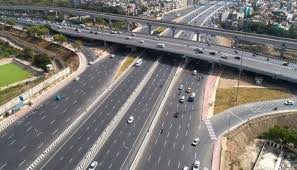Cross-border traders along the Lagos-Abidjan trade corridor are raising the alarm over the rising cost of moving goods within the West African sub-region. Many of them say the burden of multiple levies, poor infrastructure, and inconsistent policies are crippling regional trade and undermining the goals of economic integration under ECOWAS.
A document obtained from aggrieved traders reveals that the cost of transit levies alone — from Nigeria through Benin Republic and onward to landlocked and coastal countries — has become unbearable for many businesses.
According to the traders, key levies charged across the corridor include:
Road maintenance levy: 0.85% of the Cost Insurance and Freight (CIF)
Statistics levy: 7.28% CIF
Corridor security levy: 0.50% CIF
Customs bond: 0.25% CIF
Customs stamp: 4% of Statutory Value
Tracking fee: ₦75,000 per truck
In Ghana, traders also contend with additional levies such as:
Administrative fee: $200 per truck
Tracking device: 50,000 CFA
Transit bond: 30,000 CFA
Processing fees: Between 50,000 CFA and 100,000 CFA
These charges, they say, are suffocating small and medium-sized enterprises that are trying to operate across borders and take advantage of the African Continental Free Trade Area (AfCFTA) agreement.
Salami Alasoadura, a prominent member of the West African Road Transport Union (WARTU), has described the corridor as one of the most difficult to trade through due to inadequate infrastructure and policy bottlenecks. He noted that facilities such as weighbridges, scanners, and electronic checkpoints are either non-functional or absent in many sections of the route, particularly in Nigeria and Benin Republic.
According to him, “There’s no trade intelligence for most of the traders. Whether it’s national, regional, or international policies, traders are left in the dark. They don’t know what applies where or what has changed from one border to the next. It makes regional trade more of a nightmare than an opportunity.”
Alasoadura also highlighted the lack of harmonisation of fiscal policies among member countries as a key issue. While Nigeria operates a 7.5% VAT, Niger Republic charges 19%, French-speaking West African countries apply 18%, and Ghana has a 15% VAT. These disparities create confusion, distort market prices, and promote unofficial trade practices like smuggling.
He further lamented that Customs authorities along the Lagos-Abidjan corridor are not cooperating effectively. “There is no structured communication or information sharing between Customs units at the borders. Security intelligence is not shared. Traders are forced to pay bribes or navigate bureaucratic hurdles just to move their goods.”
The Lagos-Abidjan corridor, which spans several West African nations including Nigeria, Benin, Togo, Ghana, and Côte d’Ivoire, is supposed to be a key economic artery for cross-border trade and logistics. But stakeholders argue that it has failed to deliver its full potential due to poor coordination and overlapping tariffs and procedures.
With the African Union pushing for increased intra-African trade through frameworks like the AfCFTA, these recurring trade barriers raise questions about how ready the region is to benefit from continent-wide market integration. Traders say they want urgent interventions from the ECOWAS Commission, relevant ministries, Customs authorities, and donor agencies to remove obstacles and streamline the corridor.
“Government agencies in the region must wake up. We need uniform trade laws, infrastructure investment, and Customs cooperation. If we don’t act now, the Lagos-Abidjan corridor will continue to discourage trade rather than promote it,” Alasoadura added.
Trade analysts are also calling for the digitisation of customs processes, proper tracking systems, and the use of modern border infrastructure to fast-track cargo clearance and reduce corruption.
As traders continue to groan under the weight of multiple levies, it remains to be seen whether governments in the region will take decisive steps to address these concerns and truly make the Lagos-Abidjan corridor a model for regional trade integration.
